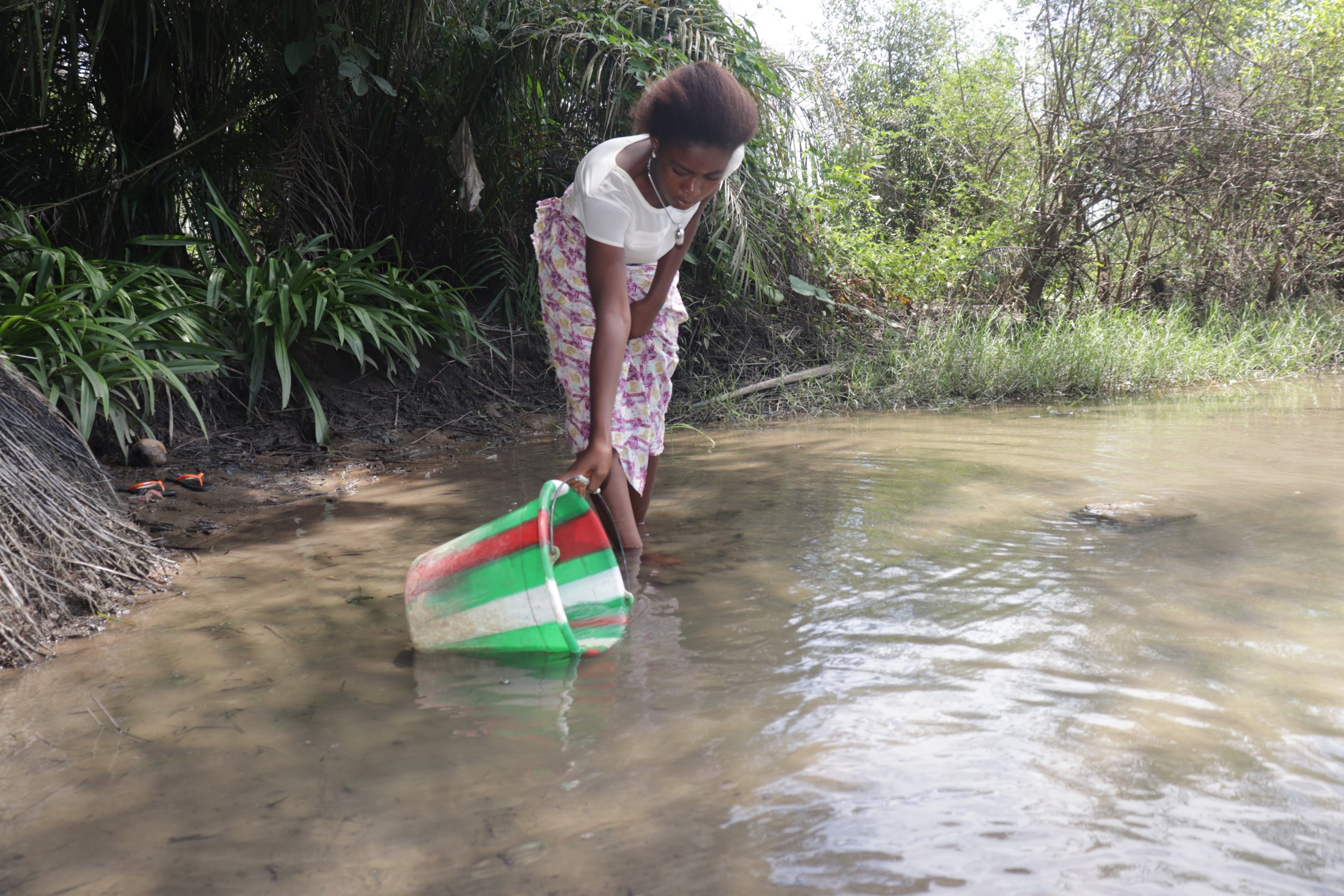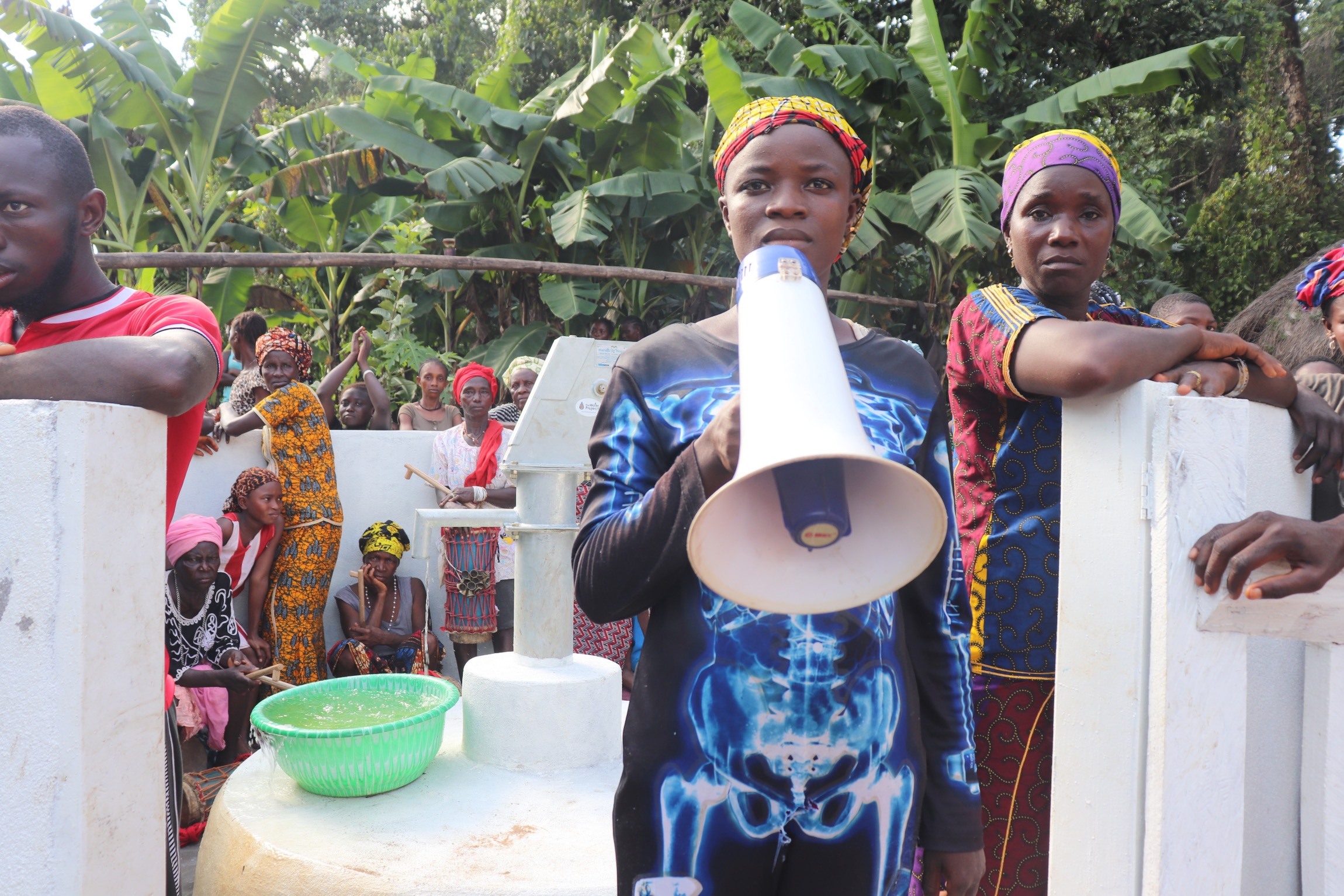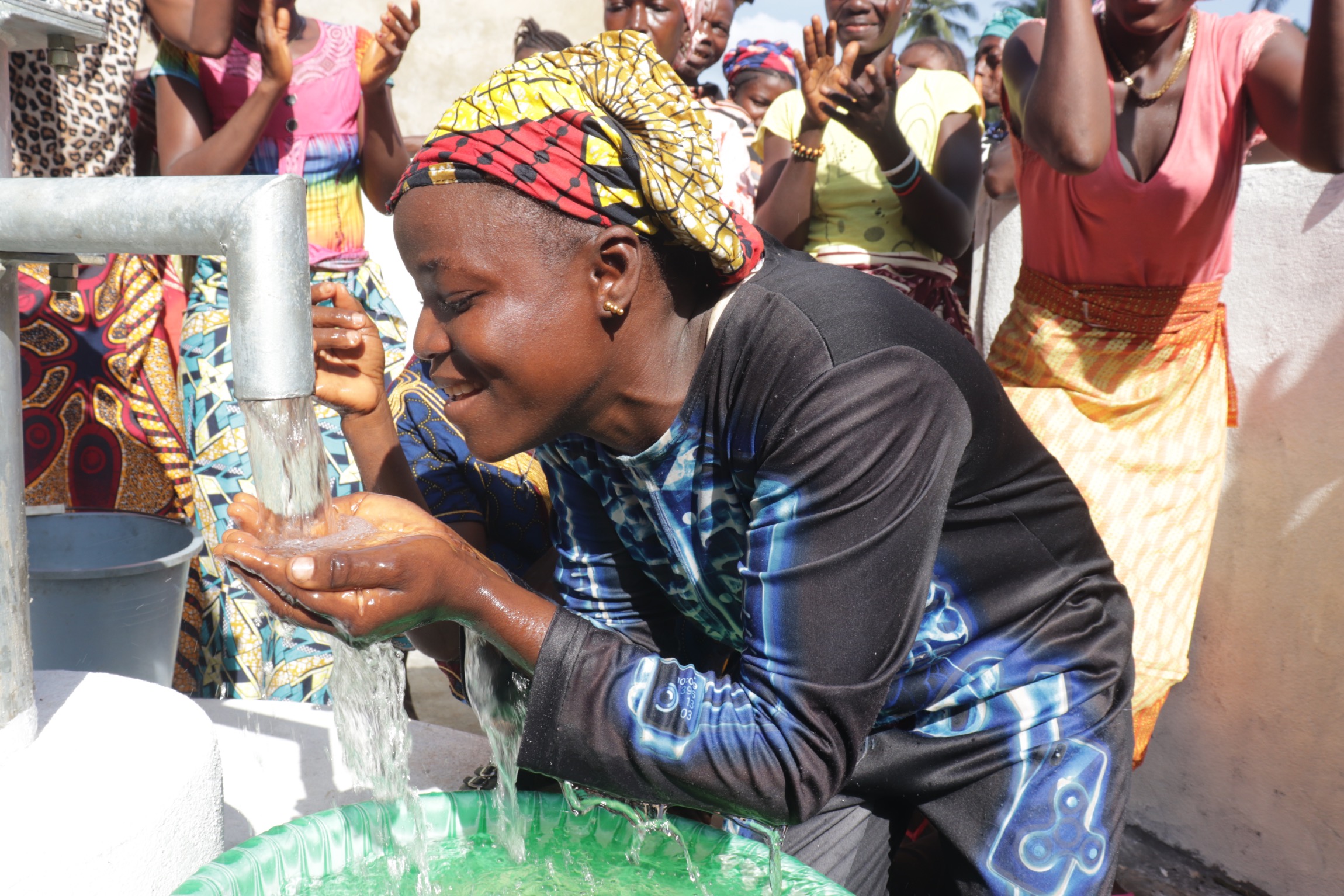International Women’s Day 2022: Breaking the bias of the water crisis
The global water crisis disproportionately affects women and girls. According to joint publications by the United Nations and World Health Organization, women and girls are responsible for collecting water in 80 percent of households without water on-premises. Lack of access to clean water literally puts the lives of women at risk. Some 1 million deaths each year are the result of women giving birth without access to safe water and adequate hygiene.
Aminata, a 17-year-old student in Menika Community, Sierra Leone, experiences harassment and bullying when she tries to collect water each day. Overcrowded water points are a common challenge in this part of Sierra Leone due to the rapidly growing population in the area near the capital city of Freetown. As a result, women and girls like Aminata compete to fetch water each day.

Aminata fetches water.
“Sometimes, it is hard to fetch water at the main well because of overcrowding. I had quarrels with people who wanted to bully me and fetch water even when I was the first to fetch water at that time,” she said.
“I was accused of provoking my elders and the matter was taken to the local chiefs. They levied charges on me. My father paid and wanted to stop financing my education.”
To avoid conflict, Aminata turns to the open water point seen above. While it is easier to get water – and less stressful for Aminata – the water is not safe for drinking.
Another girl from Sierra Leone, Mariatu K. (16), told us about the discrimination she faces.
“It is easier for a girl child to be asked to skip school than a boy,” Mariatu said.
“They are supposed to make sure the compound is swept, the dishes are clean, and there is sufficient water. All through this ordeal, they are expected to keep a nice smile and be happy. When the benefits come, they are left in the shadows.”

Mariatu speaks at the dedication ceremony for her community’s new well.
That is why this year’s theme of #BreakTheBias for International Women’s Day is fitting. Aminata should not have to decide whether she wants to drink safe water or be harassed. And Mariatu should not be expected to skip school just because clean water is difficult to come by.
One way to alleviate that problem is to ensure that there are enough reliable and safe water points within a community.
In Aminata’s case, we identified a broken-down well to rehabilitate. Once the well is complete, Aminata will have a place to go closer to home that will be used by fewer people.
Mariatu’s community already has their new well installed. She explained how the newly rehabilitated well would help her in achieving her lifelong goal.

Mariatu at her village’s newly rehabilitated well.
“This water well has reduced my trips to the swamp, which means I now have more time to study, which will eventually translate to better grades in school. I really want to surprise my parents by being the first in the family to make it all the way to college. That has always been my dream.”
To see more of the impact safe and reliable water has on girls, meet Florence Okomo. She is the President of Shisango Girls School in Kakamega, Kenya. The video below tells her story: about the impact of the water crisis on her life and the hope and opportunity that comes from gaining access to reliable water at her school.
Home More Like ThisTweet